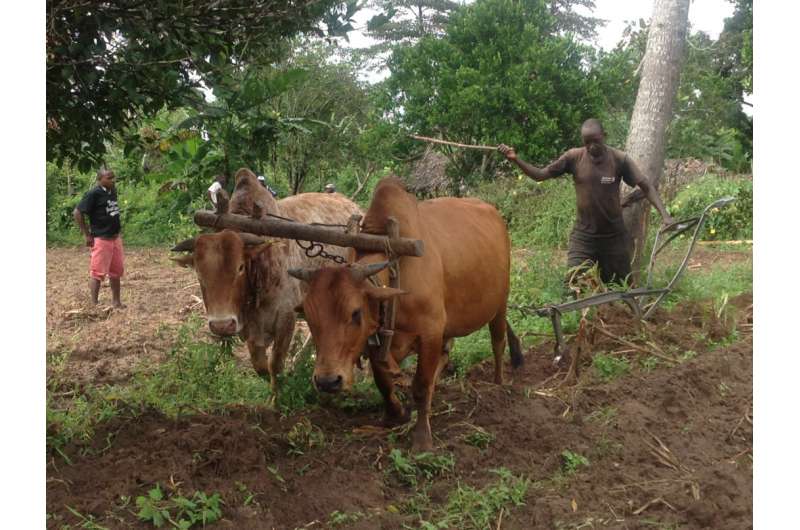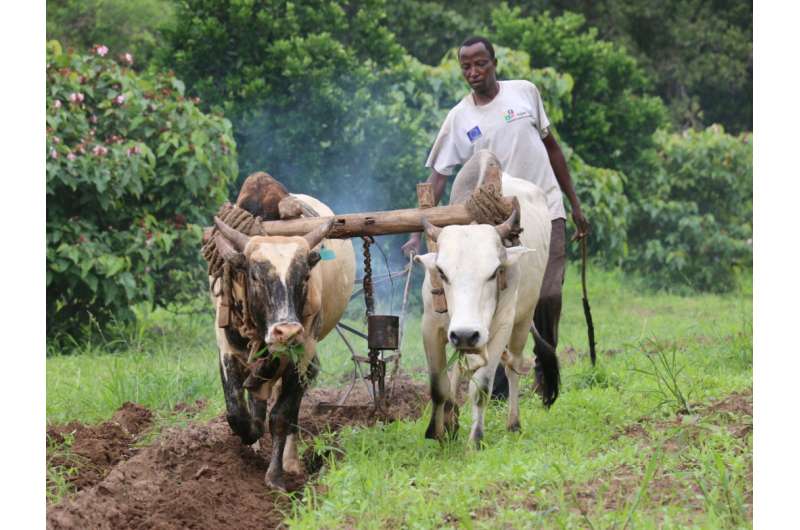'Antelope perfume' keeps flies away from cows

In Africa, tsetse flies transfer sleeping sickness to cattle. This leads to huge losses in milk, meat and manpower. The damage in Africa is estimated to be about $4.6 billion U.S. each year. Prof. Dr. Christian Borgemeister from the Center for Development Research (ZEF) at the University of Bonn and his colleagues from Kenya and the UK have developed an innovative way of preventing the disease. The scientists took advantage of the fact that tsetse flies avoid waterbucks, a widespread antelope species in Africa. The scientists imitated the smell of these antelopes. Eighty percent of cattle equipped with collars containing the defense agent were spared from the infection. This research results are presented in PLOS Neglected Tropical Diseases.
The international team of scientists first isolated, identified and synthesized the waterbuck's repellents in the laboratory. They then filled tiny amounts of the tsetse fly-repellent substance into plastic containers that were tied to the cattle with a collar. From then on the cattle exhaled the smell of the unloved waterbucks—as in the famous wolf in sheep's clothing the tsetse flies were deceived by the "antelope perfume."
Waterbuck odor reduces disease rates by more than 80 percent

This innovative method for disease prevention was tested in a large two-year field trial in Kenya. For the experiment, 120 Maasai herders provided more than 1,100 of their cattle. Compared to unprotected cattle, the disease rates of the animals wearing the collar treated with the virus were reduced by more than 80 per cent. In general, the animals with the protective collar were healthier, heavier, gave more milk, plowed more land and achieved significantly higher sales on regional markets.
"All of this contributed to a significant improvement in the food security and household income of the pastoralist families involved," says Borgemeister. Compared to the animal medicines that are usually used to treat the disease, the collar method is significantly cheaper and thus more economical, tells the researchers. In addition, the new technology is very popular among the Maasai herders. Around 99 per cent of the shepherds would like to use the collars.
"This method, successfully tested in practice, represents a significant advance for the food security of many pastoralists and cattle farmers in Africa," says Borgemeister. Since the collars are easy to apply with the antidote and do not entail high costs, the approach is particularly attractive and promising.
More information: Rajinder K. Saini et al. Protecting cows in small holder farms in East Africa from tsetse flies by mimicking the odor profile of a non-host bovid, PLOS Neglected Tropical Diseases (2017). DOI: 10.1371/journal.pntd.0005977




















